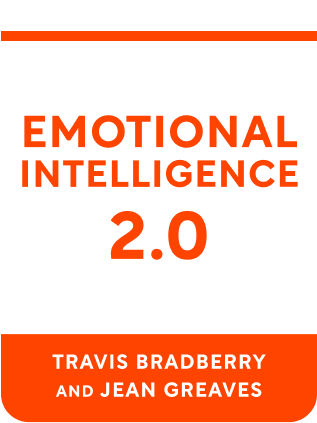

This article is an excerpt from the Shortform book guide to "Emotional Intelligence 2.0" by Travis Bradberry and Jean Greaves. Shortform has the world's best summaries and analyses of books you should be reading.
Like this article? Sign up for a free trial here .
What is emotional intelligence? Is EQ—akin to personality and cognitive IQ—a fixed characteristic? Or is it a trainable skill? Can anyone develop emotional intelligence?
Emotional intelligence is the ability to identify, interpret, and manage your own and others’ emotions. Unlike IQ , EQ is not a fixed characteristic. Much like any other skill, you can develop emotional intelligence through practice and persistence.
Keep reading for more about how to develop emotional intelligence.
Types of Intelligence
Human beings possess three defining characteristics: cognitive intelligence (IQ), personality, and emotional intelligence (EQ):
- Cognitive Intelligence (IQ) is how well you can learn new information.
- Personality is your preferences and traits such as introversion and extroversion.
- Emotional Intelligence (EQ) is your ability to recognize your emotions, recognize the emotions of those around you, and use this awareness to guide your behavior and develop strong relationships.
For many years, people have correlated cognitive intelligence (IQ) with success in the workplace. However, workers with the highest IQs rarely outperform their colleagues with average IQs. In fact, people with average IQs outperform those with high IQs 70% of the time. If IQ is not a determining factor of success in the workplace, what is? Research now points to EQ.
Can You Develop Emotional Intelligence?
Though both IQ and personality develop in early childhood,you can develop emotional intelligence through deliberate practice. Much like a muscle when you work out, the brain creates new neural pathways when you practice EQ skills. Though you may feel challenged at first, persistence will make practicing emotional intelligence easier and habitual.
For example, if someone makes you angry, you may currently have the urge to scream. At first, you’ll struggle to use your EQ skills to resist the urge. However, if you use these skills long enough, you will eventually develop higher emotional intelligence, and you’ll no longer be tempted to blow up.
Personal Competence and Social Competence
You can develop emotional intelligence by practicing two different competencies: personal competence and social competence.
First, you need to develop personal competence. Personal competence is your ability to manage your own emotions and tendencies. There are two steps to personal competence: self-awareness and self-management.
Once you’ve developed personal competence, the next step is to develop emotional intelligence is social situations (your social competence). Social competence is your ability to interact with people effectively. There are two steps to develop social competence: social awareness and relationship management.
Fun Facts About Emotional Intelligence
The average EQ of working people in the United States increased by 3-4% between 2003-2008, when EQ became a focus of America’s workforce (with the only dip in growth occurring in 2008, likely due to the economic recession). This shows that awareness and development of EQ skills yield significant results.
On average, CEOs have the lowest EQ in the workplace while middle management typically has the highest. This is because CEOs and higher-level management tend to interact with their workforce less than middle management.
Chinese workers tend to have a higher EQ than American workers. This is because business leaders in China tend to make business personal by scheduling dinners with their employees, having meetings to talk with their employees about their personal lives, and setting an example on how to connect with colleagues.
A 2003 study showed that women typically have better self-management, social awareness, and relationship management skills. The only EQ area where men typically do better than women is self-awareness. Since then, men have caught up in self-management, but still lag behind women in both facets of social competence. This is likely due to the fact that, until recently, men have been told that their emotions are signs of weakness instead of important tools.
Younger people tend to have lower self-management scores than older people. This is because experience comes with age. The more experience you have, the better equipped you are to handle your emotions.

———End of Preview———
Like what you just read? Read the rest of the world's best book summary and analysis of Travis Bradberry and Jean Greaves's "Emotional Intelligence 2.0" at Shortform .
Here's what you'll find in our full Emotional Intelligence 2.0 summary :
- What emotional intelligence is and why it's essential for your workplace success
- The 4 reasons you need to work on your EQ
- How you can use EQ to better manage relationships






